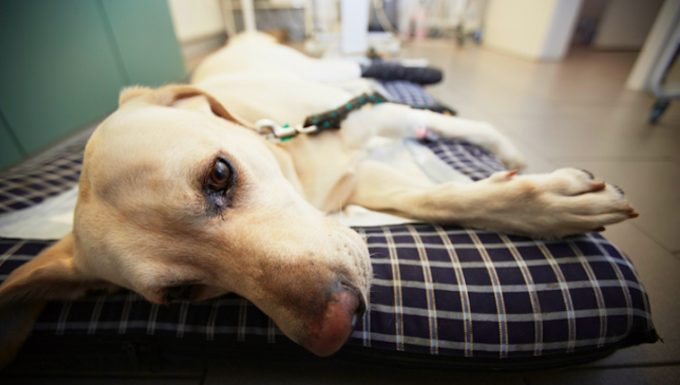Head pressing in dogs is a condition that causes a dog to press their head against a wall. The condition is a compulsive behavior.
In general, the condition is a sign of nervous system problems.
If you see the signs of head pressing in your dog, then get to a veterinarian for a proper diagnosis and treatment.
Here’s what you should know about the symptoms, causes, and treatments for the condition.
Symptoms of Head Pressing in Dogs
The condition produces the main symptom of a dog pressing their head against a wall (or other solid object). Some of the other common symptoms include:
- Delayed reflexes
- Seizures
- Vision problems
- Circling and pacing
Causes of Head Pressing in Dogs

The cause of the condition can be a number of things. For instance, some of the common causes include:
- Nervous system infections
- Neurological problems
- Metabolic issues
- Tumors
- Meningitis
- Trauma
- Poisons
Treatments for Head Pressing in Dogs
Firstly, your vet will ask about your dog’s symptoms. Secondly, your vet will ask about any circumstances where your dog could have come into contact with any poisons or toxic substances.
MRI scans and imaging techniques can be used to investigate the condition.
Treatment will focus on the underlying cause of the condition. If the problem is poisoning, the toxic substances need to be flushed out. This can involve the use of activated charcoal.
In some cases, the use of antibiotics can stop an infection. As always, if your vet prescribes your dog any medicine, make sure to stick to the correct dose and frequency instructions. Also, complete the full course of medicine.
In general, while recovering at home it is important to provide your dog with a quiet and calm environment. Also, keep up regular visits with your vet to monitor your dog’s health and recovery.
Have you ever cared for a dog who suffered from this condition? How did your vet help your dog recover? Let us know in the comments section below.









